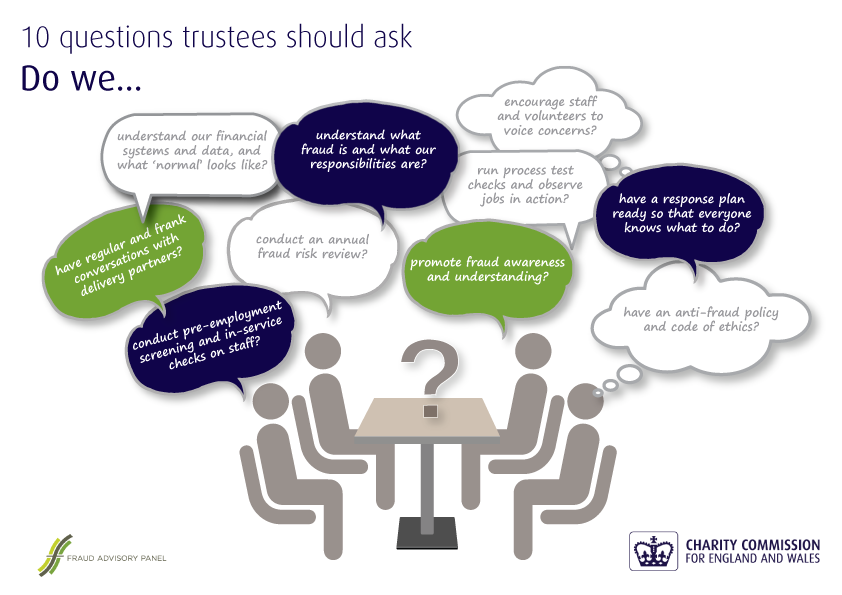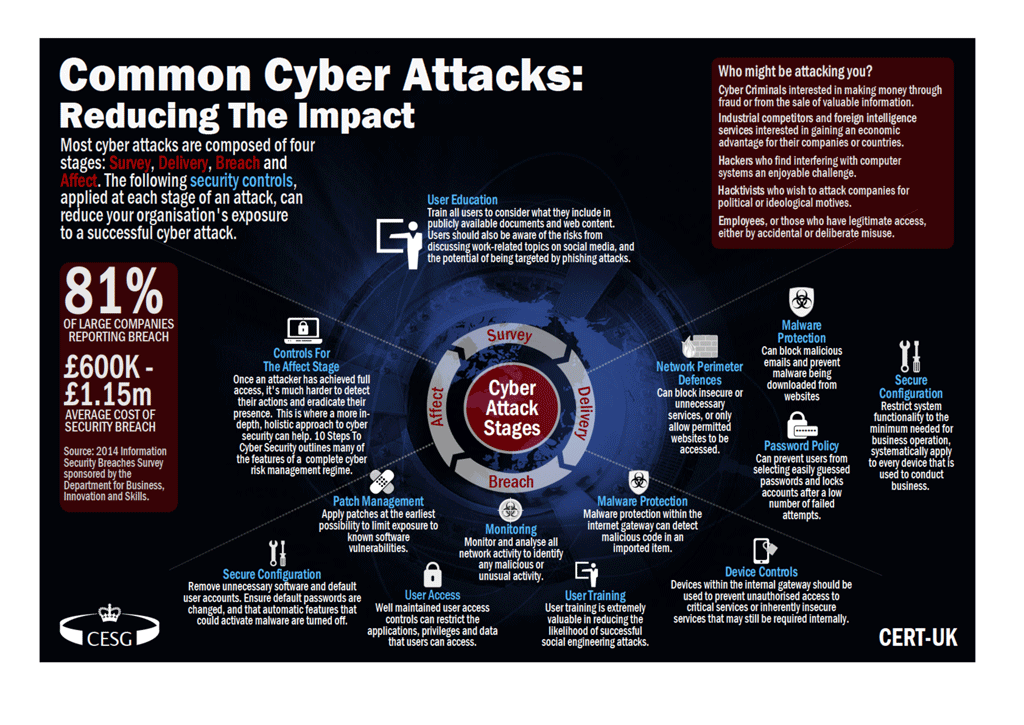Protect against fraud
Fraud is a serious problem: charities can and should do more to be fraud-aware.
Charity trustees have a duty to manage their charity’s resources responsibly and ensure that funds are properly protected, applied and accounted for.
With a total annual income of over £69 billion, the charity sector is vulnerable to fraud and financial crime. It’s essential that trustees put in place suitable counter-fraud measures – even small changes can help protect charities from harm.
It’s vital that all money given to charities is applied for legitimate and lawful purposes.
Financial fraud
Fraud and financial crime is the most common type of abuse for charities, highlighted in the Charity Commission’s recent report ‘Tackling abuse and mismanagement’. Trustees can avoid basic mistakes and make sure their charity is well protected by:
- putting in place financial controls and ensuring consistant application
- ensuring strong financial management and good governance
- reading the Commission’s guidance on Internal Financial Controls for Charities (CC8)
For some charities, due to the nature of their activities (for example, shops or trading outlets), the risk of incurring loss or being the victim of crime is higher. If your charity relies upon cash-based fund raising, it may be more vulnerable to opportunist and organised fraudsters, who can take advantage of the trust and honesty shown by trustees or volunteers. For advice on protecting your charity from fraud and financial crime, see Chapter 3 of the Commission’s Compliance Toolkit.
Charities should take a proactive approach to reducing fraud risk, as outlined via best practice advice and practical tips in Charity Finance Group’s ‘Countering Fraud Manual’.
To see best practice counter-fraud frameworks for charities please see here.
Cyber fraud
The risks to your charity from cyber-fraud are increasing all the time - roughly 70% of all fraud is now committed online and it has been described as ‘the crime of our times’. These crimes can be quite complex and difficult to detect, often involving data breaches or identity fraud. It’s important that you consider how best to protect your charity from harm online. For advice on guarding against cyber-crime see the Cyber Essentials Scheme.
For an insight into the mindset of cyber-hackers, see the following article published in Nature.
Handpicked links
- Non Gamstop Casinos UK
- Casino Not On Gamstop
- Gambling Sites Not On Gamstop
- Gambling Sites Not On Gamstop
- UK Online Casinos Not On Gamstop
- Non Gamstop Casino Sites UK
- Non Gamstop Casino Sites UK
- Non Gamstop Casinos
- Casinos Not On Gamstop
- Slots Not On Gamstop
- Non Gamstop Casinos
- Casinos Not On Gamstop
- Non Gamstop Casinos
- Non Gamstop Casino UK
- UK Casino Not On Gamstop
- Non Gamstop Casinos
- Non Gamstop Casino
- Best Non Gamstop Casino
- Best Online Betting Sites UK
- Sports Betting Sites Not On Gamstop Uk
- Horse Racing Betting
- Gambling Sites Not On Gamstop

